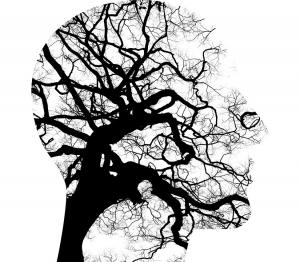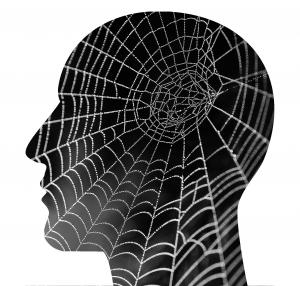
My first bout with suicidal feelings was in high school. I remember sitting in my dark basement one night and wishing I could suddenly disappear forever. I was afraid to take my own life though, because my dad had always taught me that a person of faith didn’t have the right to place themselves in the Creator’s position and choose life or death. Yet I desperately wanted to die. My soul was in complete agony. I couldn’t see a way out of my painful existence and I didn’t know where to turn for help. I couldn’t imagine this suffocating feeling would ever end. It was intolerable. I curled up in a ball and silently prayed for peace, and for God to let me go. I hoped it wouldn’t hurt.
Since becoming a Muslim, suicide has been a sensitive subject. I’ve always known that my religion unequivocally forbids this action. But the tricky part is, at what point does my mental state come into play in a case like this? If I were manic and emotionally dysregulated, and then made the decision to attempt suicide, would Allah hold me accountable if I completed the act? Or would he forgive me due to my inability to think clearly. Would my impulsivity come into play? What if I were unable to stop myself due to being in a state of psychosis? What if my bipolar depression caused me to dissociate and I couldn’t appreciate the full impact of my actions? I wondered all these things and more during a period of mental instability. As my health declined, I became increasingly delusional, disillusioned with my life and the world. I spent a cold winter night in 2015 deciding whether to end my life, as I’ve done so many times before. On this occasion, loneliness and paranoia had overtaken my mind, and I felt as though the universe was out to get me. What other explanation was there for my misery? I felt like I couldn’t exist anymore and that I deserved Allah’s punishment for being a bad person. I hated myself and I imagined everybody else did as well. I didn’t want my kids to have a mother like me. I felt happy that their step mother was someone I respected and could trust to take care of them in my absence. Nobody needed me here anymore, my time was up. That’s what I thought anyway.
Eventually I got through that night safely. And I recovered from my suicidal feelings. But I was left with a sense of confusion about suicide in Islam. I didn’t feel this was a subject I knew enough about. One thing I kept dwelling on was the idea of causing myself harm whether intentionally or otherwise, and how it’s handled in the American psychiatric community. Whenever I’ve been a danger to myself, I’ve received inpatient psychiatric treatment until I was mentally healthy. Twice it was made clear that this treatment was mandatory for my safety and that it was apparent I couldn’t make life affirming choices. When I did a cursory exploration into the basics of Islamic law concerning mental health and competency, I found that the treatment for someone like me was quite similar. I have the right to hospitalization and psychiatric treatment not only for my safety, but for my general wellbeing. And if it becomes clear that I’m unable to make that choice for myself, involuntary hospitalization may become a necessary step. Upon reading this, I realized I had more questions about the fiqh of mental health in Islam and about suicide. If measures were in place to prevent me from harming myself, could it be that suicide/suicidality for someone living with mental illness may be a complicated issue requiring in depth study?
Another question that arose around this time was that of self-harm. I couldn’t reconcile how though I’ve always known suicide is forbidden, that at times I’ve knowingly been on the brink of making this fatal choice anyway. This means that some part of me may have known Allah might be upset with my choice and I might have been willing to place myself able to be ultimately judged for my major mistake. That a person would knowingly harm themselves is one of the reasons hospitals, doctors and sometimes even law enforcement steps in to stop them. The person’s judgment is temporarily impaired and it’s then up to others to get them to a place of safety and security until they’re feeling better. So even the very notion of suicide appears to be one that fits into the larger category of self-harm. It’s its own illness that requires specific treatment and care. I vowed to research this topic further and begin asking necessary questions of those who had studied Islamic law. It’s not that I was planning to commit this deed. Just that the fear of not knowing about a part of my life and something that affects people in my mental health community caused me to want to understand it from an Islamic perspective. Stigma surrounding mental health and suicide in Muslim communities made me fearful to ask about this topic. But I knew I didn’t have a choice if I wanted to know the full truth.













